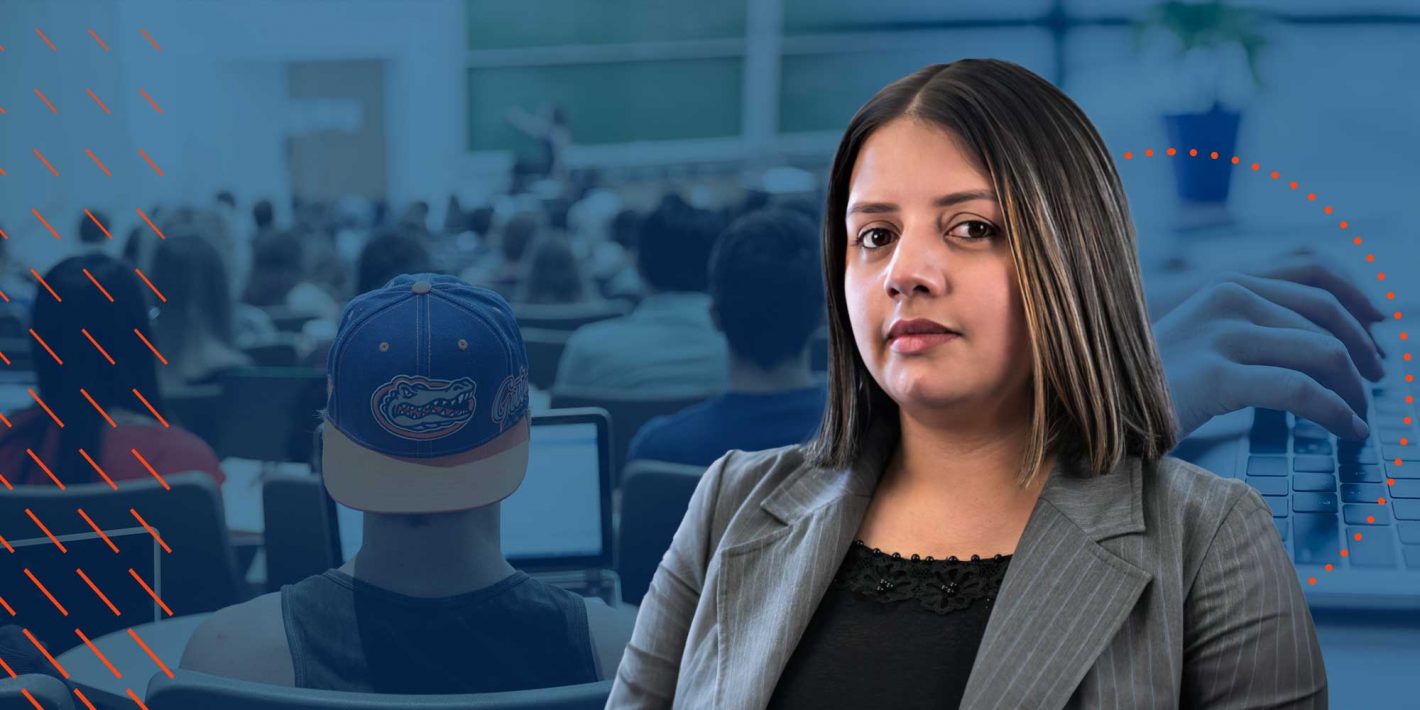Researchers at the University of Florida’s Herbert Wertheim College of Engineering have received a strategic funding award for a project called Leveraging the Power of Large Language Models.
The initiative, which received funding of $474,000 over two years, will help develop a large language model-based software tool to leverage the computing-intensive capabilities of HiPerGator, collecting beneficial data for instructors and administrators about student performance.
“This is an incredible initiative that will help UF students become more skilled, efficient programmers,” UF President Ben Sasse said. “Any opportunity to bring visibility to our NVIDIA AI supercomputer is worth championing.”
The award is part of Sasse’s ongoing strategic funding process, which is aimed at significantly improving the student education experience and promoting interdisciplinary scholarship at UF.
The team of researchers for the project is led by principal investigator Laura Cruz Castro, Ph.D., an instructional assistant professor in UF’s Department of Engineering Education and the Department of Computer & Information Science & Engineering.
Joining her as co-principal investigators are Ashish Aggarwal, M.S., an instructional associate professor in the Department of Engineering Education; Bruce Carroll, Ph.D., an associate professor in the Department of Mechanical & Aerospace Engineering; Jinnie Shin, Ph.D., an assistant professor of research and evaluation methodology in the School of Human Development and Organizational Studies in Education within the College of Education; Gabriel Castelblanco, Ph.D., an assistant professor in the M.E. Rinker, Sr. School of Construction Management; and Walter Leite, Ph.D., a professor in the College of Education.
“We have seen technological advancements and the quick evolution of AI,” Cruz Castro said. “We want to create a tool that is going to be funneling all the current AI resources students are already using into a place that will help them better with their work while assisting the university in learning what the students are doing and what needs to be worked on to better prepare them for the future.”
Working with large language models, the researchers aim to offer interactive, personalized learning as part of the student experience at UF.
“Large language models provide a great alternative for some of the challenges that large computing classes have faced for a long time,” Cruz Castro said. “Leveraging the power of large language models, we can better serve our students by giving them immediate, meaningful, and personalized feedback; these are critical components in keeping students engaged and learning actively.”
The project, which will be rolled out in four phases, is set to develop an AI-based interactive software tool that lets students gain timely feedback on their assignments, navigate course materials, and receive guidance on aspects of their learning (such as time management tips and career advice). This tool will also collect valuable student interaction data, giving instructors and administrators important insights about how students learn and what their performance outcomes look like.
“We are ready to work with UF’s unique resources, such as the HiPerGator, to take advantage of the new advancements in generative AI,” Cruz Castro said. “By leveraging these technological advancements, our students are ahead of the learning curve to better prepare for the ever-changing, new computing profession landscape.”
The tool will be designed and piloted in the summer of 2024 for a large enrollment programming course that will impact nearly 2,500 students. Data will be collected to inform the researchers ahead of the program’s expansion to additional courses in the fall of 2024. Then, the effectiveness of the tool will be rigorously assessed, and an impact analysis will be conducted on both learning and teaching.
“This type of tool is not replacing humans, and that is a very important point to make,” Cruz Castro said. “If a student is writing something and the tool knows the data of their course, it can help give them immediate feedback that a professor might not be able to give right away, which can be very critical when progressing through the project.”
This initiative is part of a highly selective group of work that only a large, comprehensive, land-grant university like UF is uniquely positioned to produce. Researchers hope to eventually expand the tool to help every instructor on campus.
“Computing education is in the eye of society because of current, rapid technological advances,” Cruz Castro said. “We want students to feel excited about harnessing these current technological advances and tools and use them to their own advantage.”
